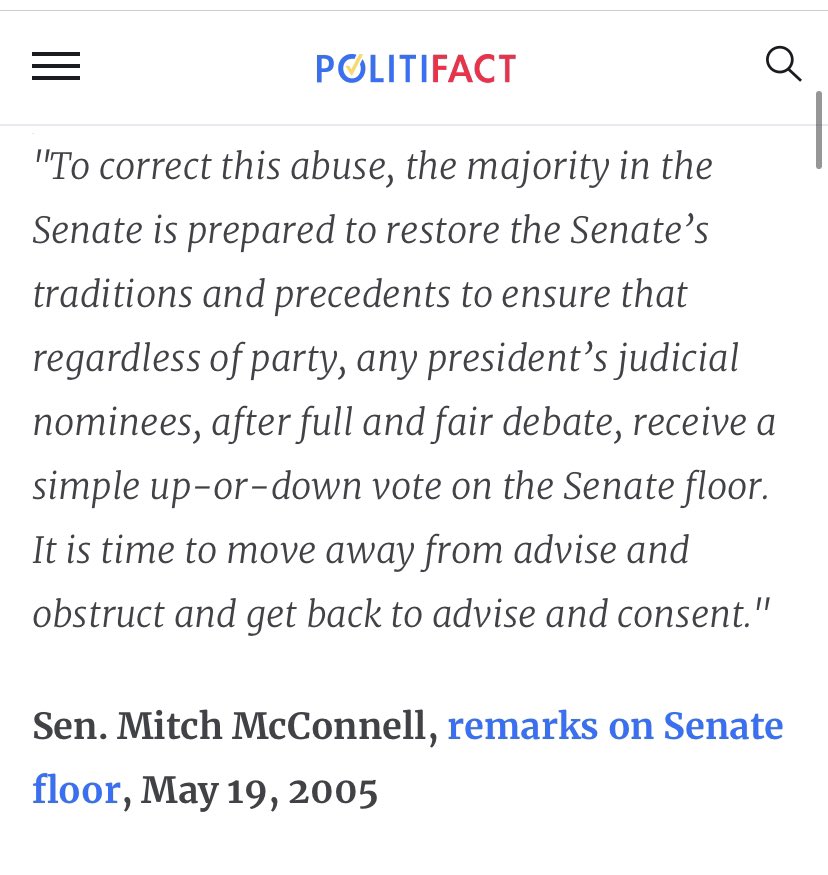
The BIF is at a critical moment and Dems have to be careful not to get played. It has spiraled from “we’ll be ready Monday” to “Ok maybe not Monday” to the fact that *transit* remains unresolved in an infrastructure package, to Coons suggesting the BIF drop transit altogether. 1/ 







First, caveat: it’s (often) darkest before the dawn. These kinds of deals can see a lot of last-minute squabbling before getting finalized. But the size of this group, intended as a show of force, makes it particularly unwieldy. So, this could all be last-minute jockeying. Or…
I have a habit (that I would love to shake one day) of looking at these things through the lens of, what does McConnell want? Ostensibly, he has been in the background. But on a high-profile issue that could define this session, he's probably not actually in the background.
As always, McConnell wants what's best for his conference and 2022ers. A bipartisan win on Dems' top agenda item would be good for Dems and bad for Rs. Ergo, McConnell probably does not want BIF to pass. There are complex theories on why he might. But I'll go Occam's Razor here. 

McConnell has always been focused on denying bipartisanship to Democrats. In this great @JoshuaGreen profile from 2011, McConnell let the mask slip - a rare occurrence.
A decade later, Democrats should enter every negotiation with this front of mind. theatlantic.com/magazine/archi…
A decade later, Democrats should enter every negotiation with this front of mind. theatlantic.com/magazine/archi…

The problem is that Dems have never stopped being horny for bipartisanship. It wafts off them like pheromones. When I worked for Reid, we talked about "deal disease," which is when you become more obsessed with getting the deal than delivering good policy. Dems project it.
This is not 2009. Then, Grassley singlehandedly strung along Dems and reporters into thinking bipartisanship was possible on ACA. McConnell made no secret of his opposition, in part because he was a new leader who had to persuade Republicans to oppose a POTUS with a 60+ approval.
Dems should assume McConnell's goal is the same now as in 2009: string Democrats along for as long as possible while convincing reporters there's a real chance at bipartisan cooperation on a top agenda item. When bipartisanship fails, pin it on Dems, or at least muddy the waters.
On BIF, Plan A for McConnell might be for it to die of its own weight, with him seen by all as neutral. This means Dems don't get bipartisanship on their top priority, while he keeps enough credibility with Manchin, Sinema & Biden to stop them from turning to filibuster reform.
Ideally, under Plan A, Democrats would be blamed for BIF's failure. Maybe it's a procedural objection, like all the drama over the cloture vote. Barring that, it could be Republicans taking an unreasonable stance on something like transit funding, and forcing Dems to walk away.
Plan B for McConnell might be to pull enough Rs off the bill to prevent it from getting 60, after eating lots of clock. The downside is that his opposition would probably become clear. But the upside is that he still bled out a lot of Biden's political capital in his first year.
Since this is not 2009 and folks are more alert to McConnell's tactics, it's crucial that all involved, including the negotiators, think he's neutral. This can backfire. But the reason it can work is that the vast majority of his conference opposes the deal & peer pressure works.
One danger is that to keep the deal alive, Dems will prop up the idea that McConnell and Rs are acting in good faith. The negotiators may think they are. But all the drama over the cloture vote and Republicans’ unreasonable stance on transit funding, should be big red flags.
Yea, this. While Republicans are working to pin the failure on Dems, Dems are still telling reporters that Republicans are operating in good faith. I’ve seen it many times. The blame-game matters for the hearts and minds of moderates, whose votes we need on reconciliation.
https://twitter.com/tombenthin/status/1418739975378456577
• • •
Missing some Tweet in this thread? You can try to
force a refresh








